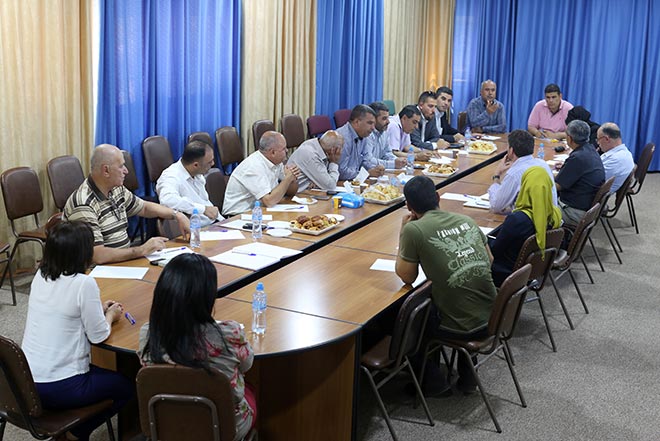Research to Explore Limits, Possibilities of Prepaid Water Meters
Birzeit University’s Institute of Environmental and Water Studies at Birzeit University held on May 31, 2016 a preparatory meeting to define a research project on the social and economic impact of prepaid meters and the influence of intermittent water supply in the West Bank.
Teaching faculty, village council members, municipality staff, and representatives from the private sector attended the meeting.
Head of the Institute of Environmental and Water Studies Maher Abu Madi said that prepaid water meters remain controversial inside Palestine despite the Palestinian cabinet’s decision in 2013 to support the implementation of prepaid residential water meters, which have a positive impact on both the consumer and service provider.
“This evidence-based study hopes to contribute to the ongoing dialogue in several ways,” Abu Madi said. “It presents a systematic body of research on the opportunities, limits, costs and benefits of different cities in Palestine and the implications of prepaid systems on each city.” He said the study will offer a tour of real-life cases in Tulkarem, Ramallah and Hebron.
“Palestine is actually very rich in water resources, but unequal water distribution benefits Israel and Israeli settlers while Palestinians struggle for basic water access,” he went on. Other problems include water loss, collection efficiency in overdue bills, the high price of purchased water, high operation and maintenance costs, and illegal consumption.
Abu Madi indicated that the study’s analysis aims to extend more broadly than the issue of prepaid meters and that service providers need to consider the wider system, from technical challenges to management of resources.







